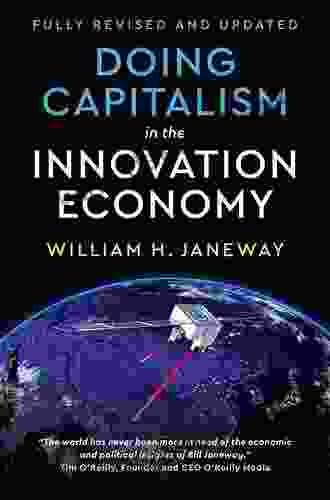Markets, Speculation, and the Role of the State: A Comprehensive Exploration

Financial markets are complex and ever-changing, driven by a multitude of factors that can be difficult to understand. One of the most influential factors is speculation, which can have a major impact on market prices. In this article, we will explore the nature of markets, the role of speculation within them, and the potential implications of government intervention in speculative activity.
Markets are places where buyers and sellers come together to exchange goods and services. They can be physical, such as a farmers market or a stock exchange, or they can be virtual, such as an online marketplace. Markets play a vital role in the economy, allowing for the efficient allocation of resources and the distribution of goods and services.
Speculation is the buying and selling of assets with the hope of making a profit. Speculators are not interested in the underlying value of an asset; they are simply trying to profit from short-term price movements. Speculation can be a risky activity, but it can also be very profitable.
4.7 out of 5
| Language | : | English |
| File size | : | 1776 KB |
| Text-to-Speech | : | Enabled |
| Screen Reader | : | Supported |
| Enhanced typesetting | : | Enabled |
| Word Wise | : | Enabled |
| Print length | : | 343 pages |
| X-Ray for textbooks | : | Enabled |
Speculation plays a number of important roles in financial markets. First, it provides liquidity, which makes it easier for buyers and sellers to trade assets. Second, it helps to discover prices, as speculators bid up the prices of assets that they believe are undervalued and sell off the prices of assets that they believe are overvalued. Third, speculation can help to stabilize markets, as speculators tend to buy assets when prices are falling and sell assets when prices are rising.
While speculation can be beneficial to markets, it can also pose a number of risks. One of the biggest risks is that speculation can lead to bubbles, which are unsustainable increases in asset prices. Bubbles can eventually burst, leading to a sharp decline in prices. This can cause significant losses for investors and can also damage the economy as a whole.
Another risk of speculation is that it can lead to excessive risk-taking. Speculators can become so focused on making a profit that they take on more risk than they can afford to lose. This can lead to financial ruin for individual investors and can also contribute to systemic risk in the financial system.
Governments have a number of tools at their disposal to regulate speculative activity. These tools include:
- Margin requirements: Margin requirements are the amount of money that investors must put up when they borrow to purchase an asset. By raising margin requirements, governments can make it more expensive for investors to speculate in assets.
- Short selling restrictions: Short selling is the practice of selling an asset that you do not own, with the hope of buying it back at a lower price later on. Short selling can be a risky activity, and governments can restrict short selling in order to reduce the risk of market bubbles.
- Taxes: Governments can impose taxes on speculative activity, such as capital gains taxes and financial transaction taxes. These taxes can make it more expensive for investors to speculate and can reduce the amount of speculation in markets.
The effectiveness of government intervention in speculative activity is a matter of debate. Some economists argue that government intervention can be counterproductive, as it can lead to unintended consequences and can discourage legitimate investment. Others argue that government intervention is necessary to reduce the risks of speculation and to protect investors.
Markets, speculation, and the role of the state are complex and interrelated issues. There is no easy answer to the question of how to regulate speculative activity, but it is an important issue to consider given the potential risks and benefits of speculation. By understanding the nature of markets and the role of speculation within them, we can make more informed decisions about how to regulate speculative activity and avoid the potential risks.
4.7 out of 5
| Language | : | English |
| File size | : | 1776 KB |
| Text-to-Speech | : | Enabled |
| Screen Reader | : | Supported |
| Enhanced typesetting | : | Enabled |
| Word Wise | : | Enabled |
| Print length | : | 343 pages |
| X-Ray for textbooks | : | Enabled |
Do you want to contribute by writing guest posts on this blog?
Please contact us and send us a resume of previous articles that you have written.
 Book
Book Novel
Novel Chapter
Chapter Genre
Genre Library
Library Paperback
Paperback Paragraph
Paragraph Sentence
Sentence Shelf
Shelf Glossary
Glossary Foreword
Foreword Annotation
Annotation Footnote
Footnote Manuscript
Manuscript Scroll
Scroll Tome
Tome Bestseller
Bestseller Classics
Classics Library card
Library card Memoir
Memoir Reference
Reference Encyclopedia
Encyclopedia Character
Character Resolution
Resolution Librarian
Librarian Stacks
Stacks Archives
Archives Study
Study Research
Research Scholarly
Scholarly Lending
Lending Reserve
Reserve Academic
Academic Reading Room
Reading Room Literacy
Literacy Study Group
Study Group Dissertation
Dissertation Awards
Awards Book Club
Book Club Textbooks
Textbooks Adrienne Su
Adrienne Su Course Hero
Course Hero Terry Goodkind
Terry Goodkind Marc Sageman
Marc Sageman Jennifer Rubenstein
Jennifer Rubenstein Sean Dorian
Sean Dorian Jimmy Ingram
Jimmy Ingram Tom Helix
Tom Helix Diane Muldrow
Diane Muldrow Kareem Abdul Rahman
Kareem Abdul Rahman Andy Byford
Andy Byford Debbie Macomber
Debbie Macomber Jane Keefer
Jane Keefer Agnieszka Biskup
Agnieszka Biskup Gini Graham Scott
Gini Graham Scott Sue Beevers
Sue Beevers Jeff Evans
Jeff Evans Kay Hadashi
Kay Hadashi Keith Koeneman
Keith Koeneman Tina Tempest
Tina Tempest
Light bulbAdvertise smarter! Our strategic ad space ensures maximum exposure. Reserve your spot today!

 Troy SimmonsAngry Meta Love: Stacy Reid's Unflinching Exploration of Unrequited Love and...
Troy SimmonsAngry Meta Love: Stacy Reid's Unflinching Exploration of Unrequited Love and...
 Dan HendersonUnveiling the Enthralling World of "Vanish": A Deep Dive into the Rizzoli...
Dan HendersonUnveiling the Enthralling World of "Vanish": A Deep Dive into the Rizzoli...
 Jamie BellHome to the Harbor: A Comprehensive Guide to San Diego's Historic Waterfront...
Jamie BellHome to the Harbor: A Comprehensive Guide to San Diego's Historic Waterfront...
 Robert HeinleinTargeted Practice Workbook Letts 11 Success: A Comprehensive Guide to Exam...
Robert HeinleinTargeted Practice Workbook Letts 11 Success: A Comprehensive Guide to Exam... Carlos FuentesFollow ·16.3k
Carlos FuentesFollow ·16.3k Ken SimmonsFollow ·19.4k
Ken SimmonsFollow ·19.4k Hayden MitchellFollow ·12.3k
Hayden MitchellFollow ·12.3k Cormac McCarthyFollow ·16.8k
Cormac McCarthyFollow ·16.8k Travis FosterFollow ·18.7k
Travis FosterFollow ·18.7k Preston SimmonsFollow ·5.2k
Preston SimmonsFollow ·5.2k Tyrone PowellFollow ·5.2k
Tyrone PowellFollow ·5.2k Sammy PowellFollow ·8.2k
Sammy PowellFollow ·8.2k

 Darius Cox
Darius CoxThe Gathering Pacific Storm: An Epic Struggle Between...
The Gathering...

 Hugo Cox
Hugo CoxHow CIA-Contra Gangs and NGOs Manufacture, Mislabel, and...
In the annals of covert operations, the CIA's...

 Finn Cox
Finn CoxDr. Brandt's Billionaires Club Series: The Ultimate...
A Journey into the Pinnacle of...

 Isaac Asimov
Isaac AsimovCurrent Affairs Daily Digest 20180730 30th July 2024
National ...

 Felix Carter
Felix CarterBroadway Celebrates The Big Apple Over 100 Years Of Show...
Broadway Celebrates the Big Apple: Over 100...

 Beau Carter
Beau CarterThe Big Book of Flute Solos: A Comprehensive Collection...
If you're a flute player,...
4.7 out of 5
| Language | : | English |
| File size | : | 1776 KB |
| Text-to-Speech | : | Enabled |
| Screen Reader | : | Supported |
| Enhanced typesetting | : | Enabled |
| Word Wise | : | Enabled |
| Print length | : | 343 pages |
| X-Ray for textbooks | : | Enabled |




